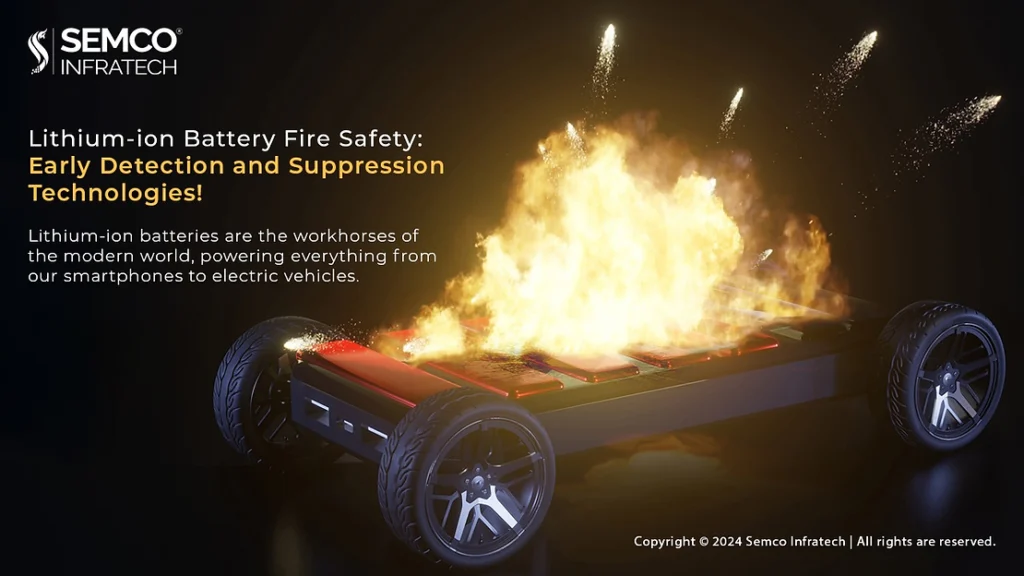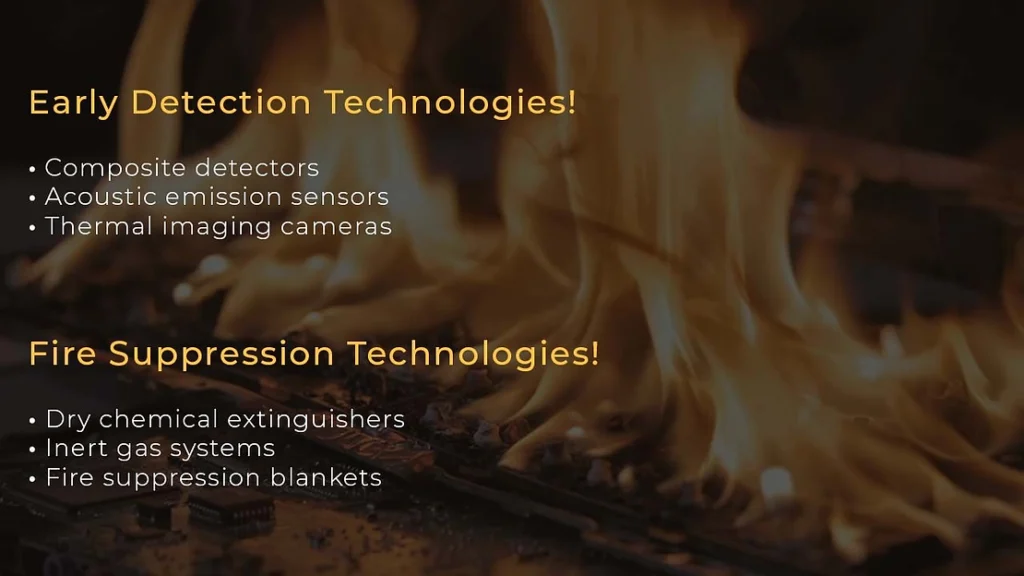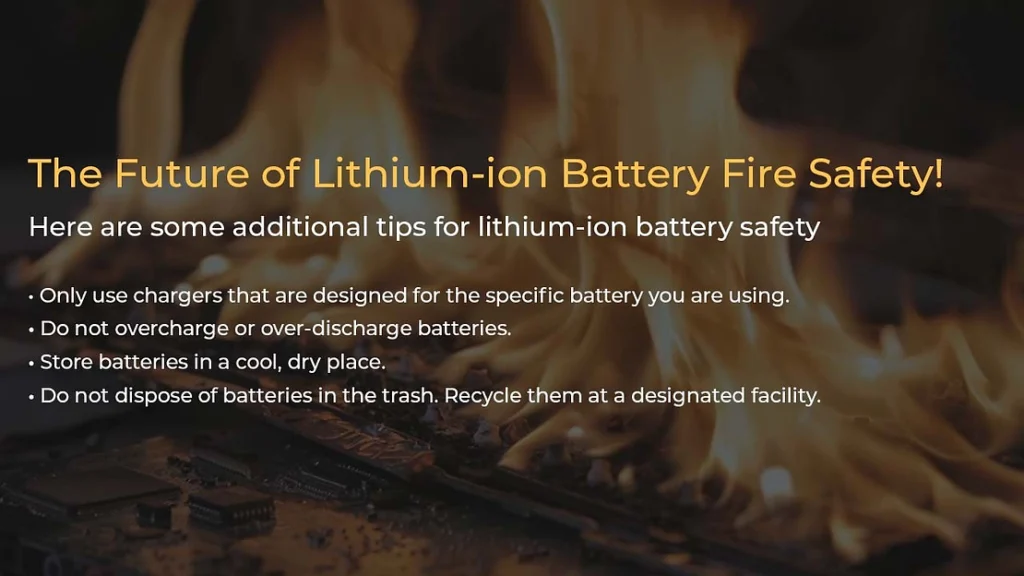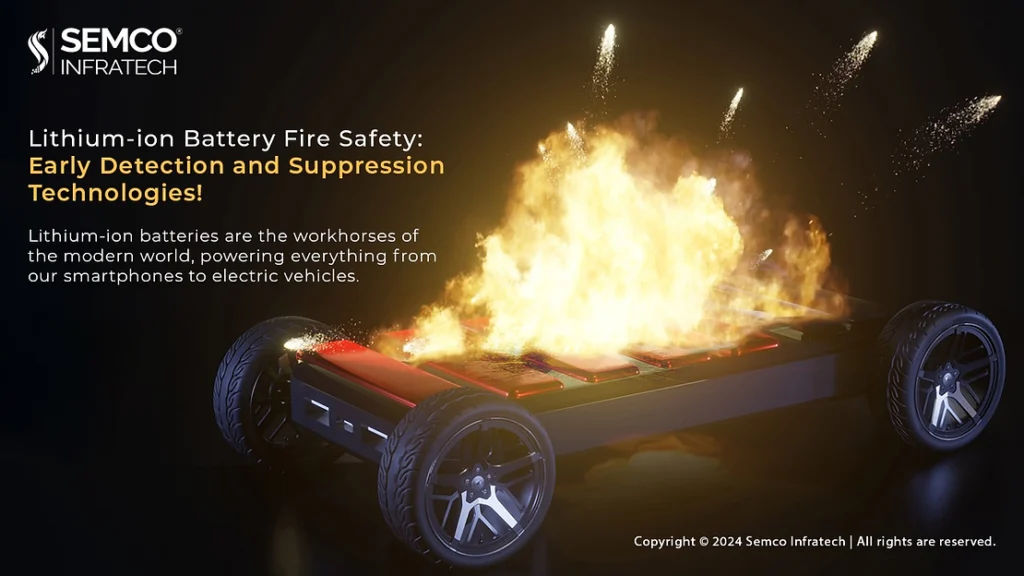
Lithium-ion batteries are the workhorses of the modern world, powering everything from our smartphones to electric vehicles. However, these powerful energy storage devices also come with a potential fire risk. In recent years, there have been several high-profile lithium-ion battery fires, raising concerns about the safety of these batteries.
One of the biggest challenges in preventing lithium-ion battery fires is early detection. Traditional fire alarms may not be effective in detecting fires that start inside a battery pack. This is because lithium-ion battery fires often smolder for some time before erupting into flames.
Early Detection Technologies
To address this challenge, researchers are developing new early detection technologies specifically for lithium-ion batteries. These technologies include:
- Composite detectors: These detectors combine smoke, gas, and temperature sensors to provide a more comprehensive picture of the fire risk.
- Acoustic emission sensors: These sensors can detect the sound waves produced by a battery as it begins to malfunction.
- Thermal imaging cameras: These cameras can detect heat signatures that may indicate a battery is overheating.

By using these early detection technologies, it is possible to identify a potential fire before it has a chance to spread. This can give firefighters precious time to respond and prevent a major disaster.
Fire Suppression Technologies
Once a fire has been detected, it is important to have effective fire suppression technology in place. Traditional water-based fire extinguishers are not effective in fighting lithium-ion battery fires. In fact, water can actually make the fire worse.
For this reason, researchers are developing new fire suppression technologies specifically for lithium-ion batteries. These technologies include:
- Dry chemical extinguishers: These extinguishers use a powder that can smother the flames and cool the battery.
- Inert gas systems: These systems flood the area with an inert gas, such as nitrogen, which displaces oxygen and prevents the fire from burning.
- Fire suppression blankets: These blankets are made of a material that can insulate the battery and prevent the fire from spreading.
By using these fire suppression technologies, it is possible to extinguish a lithium-ion battery fire quickly and safely.
The Future of Lithium-ion Battery Fire Safety
Researchers are continuing to develop new and improved fire detection and suppression technologies for lithium-ion batteries. As these technologies become more advanced, the risk of lithium-ion battery fires will continue to decrease.
In addition to technological advancements, it is also important to remember that user education and awareness play a crucial role in lithium-ion battery fire safety. By following safe handling and storage practices, we can all help to prevent lithium-ion battery fires.

Here are some additional tips for lithium-ion battery safety:
- Only use chargers that are designed for the specific battery you are using.
- Do not overcharge or overcharge batteries.
- Store batteries in a cool, dry place.
- Do not dispose of batteries in the trash. Recycle them at a designated facility.
By following these tips, we can help to ensure the safe and reliable use of lithium-ion batteries.






